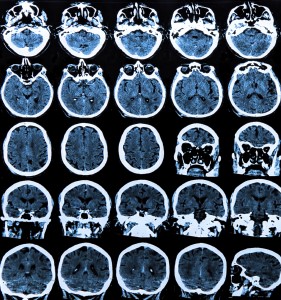The secret, sinister cause of brain breakdown—and how to stop it before it starts
Not much truly shocks me anymore. But this new study did.
It showed that symptoms of Alzheimer’s can appear in people as young as age 20. That’s right…20.
This unprecedented finding suggests that the disease starts to eat away at the brain up to half a century before acute symptoms develop. And it’s turned conventional scientific knowledge on its ear.
Sadly (yet predictably), this discovery has already led “experts” to raise the prospect of giving Alzheimer’s drugs to people in the very earliest stages. Great idea. Start giving people ineffective, side-effect-riddled Alzheimer’s drugs before they’re even legal drinking age.
Of course, useless or not, these drugs are all the mainstream has to offer.
But the fact is, there are a number of things you can do to protect your brain. In fact, recent research suggests one of the best places to start is by focusing on a system that often goes completely overlooked by most physicians.
Has your brain’s filter sprung a dangerous leak?
Researchers at the University of Southern California (USC) recently discovered that Alzheimer’s may hinge on your microcirculation.
In case you need a quick refresher: Microcirculation is the complex system of blood vessels and capillaries responsible for carrying oxygen and nutrients to all of your body parts, including your brain.
In the brain, these tiny capillaries are lined with specialized endothelial cells that make up the blood brain barrier. This barrier acts as a sort of filter—allowing essential nutrients into the brain while keeping harmful chemicals out.
But in this new study, USC researchers found the blood brain barrier becomes leaky with age. And the damage starts in the hippocampus—the area of the brain critical to memory and learning.
In fact, after controlling for other factors, the researchers found solid evidence linking a leaky blood brain barrier to dementia.
The research team’s conclusion? “To prevent dementias including Alzheimer’s, we may need to come up with ways to reseal the blood-brain barrier and prevent the brain from being flooded with toxic chemicals in the blood.”
But the fact is, there are already a number of safe, natural ways to do that.
“Micromanage” your brain health
One way to strengthen your microcirculation is to reduce damaging inflammation in the body. And that starts by cutting out foods that promote inflammation—namely, sugar, white flour, and simple carbohydrates. Instead focus on anti-inflammatory foods like organic produce, lean protein, and healthy monounsaturated fats (MUFAs)—the basis of my New Hamptons Health Miracle.
Beyond that, I recommend supplementing with French maritime pine bark extract, otherwise known as Pycnogenol®. Clinical research has shown that one of the primary ways pine bark extract benefits your circulation is by targeting collagen and elastin, which are the building blocks that line your blood vessels and capillaries.
Unfortunately, collagen and elastin break down over time, which can lead to leaky capillaries and a damaged blood brain barrier. But pine bark extract helps the body replenish these two critical substances–and keeps your blood vessels and capillaries working the way they’re supposed to in the process.
I recommend 100 mg of Pycnogenol a day.
Another essential tool for strengthening your microcirculation: citrus bioflavonoids. These compounds help increase nitric oxide production in the body. Boosting NO levels improves microcirculation by relaxing your blood vessels and capillaries. This helps blood flow through them easier, resulting in less damage.
The three most well-researched citrus bioflavonoids are diosmin, quercetin and hesperidin. I recommend 250 mg of diosmin, 25 mg of hesperidin, and 50 mg of quercetin per day, divided in two or three doses.
Tea also has incredible microcirculation-boosting benefits. Research suggests just 2-3 cups of tea per day can significantly improve microcirculation. But if you’re not a tea drinker, you can also opt for green tea extract (EGCG) supplements (500 mg from a 50:1 extract that contains 60% catechins, 30% EGCG). Or black tea extract (theaflavin) supplements (300 to 500 mg per day).
Following these simple steps will go a long way in strengthening your microcirculation. And when your microcirculation is healthy, your entire body—including your brain—reaps the rewards. For more ways to keep your brain “leak-free,” head to my website, www.drpescatore.com, and type “microcirculation” into the search bar in the upper right corner. You’ll be directed to dozens of articles written with brain health in mind.
Source:
“Early signs of Alzheimer’s disease found in patients as young as 20: ‘Unprecedented’ findings say disease eats away at cells 50 years before symptoms develop,” Daily Mail, 3/2/15
“Blood-brain barrier breakdown in the aging human hippocampus,” Neuron 2015; 85(2): 296-302
*******
Dr. Fred Pescatore is the author of the New York Times best-selling book, The Hamptons Diet and the No. 1 best-selling children’s health book, Feed Your Kids Well, amongst others. He is the President of the International and American Associations of Clinical Nutritionists, a member of the American College for the Advancement of Medicine, and belongs to many other professional organizations. Earlier in his career, Dr. Pescatore served as the Associate Medical Director of The Atkins Center for Complementary Medicine, working as the right-hand-man to the late, great Dr. Robert C. Atkins. Today he sees patients at his own practice in Manhattan and writes a monthly newsletter called Logical Health Alternatives, as well as a free e-letter called The Reality Health Check.
